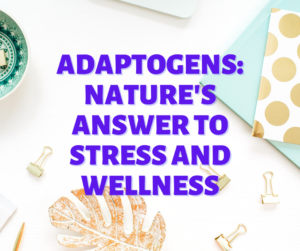Feeling lost? Like you’re wading through mud? You might be dealing with depression, a mental health condition causing overwhelming sadness, hopelessness, and loss of interest. This isn’t just a passing mood; it’s a serious health condition. But there’s hope: effective treatments and support can help you recover.
Because each person’s journey with depression is unique, this post explores common symptoms and diverse forms. From major depression to seasonal affective disorder (SAD) and perinatal depression, understanding the nuances is key.
Table of Contents:
- Understanding Depression
- Causes of Depression Are Complex
- Navigating Depression: Effective Treatments and Strategies
- Living with Depression: Practical Tips and Resources
- Conclusion
Understanding Depression
Let’s explore common signs of depression. These may include persistent sadness, appetite changes, sleep disorders, fatigue, and difficulty concentrating. Depression doesn’t manifest the same way in everyone.
Symptoms of Depression Vary
Watch for declining interest in previously enjoyed social activities, difficulty getting out of bed, changes in appetite or weight, and unexplained aches and pains. Some people with depression experience restlessness, while others feel slowed down. Many struggle with concentration, negative thoughts, feelings of worthlessness, or guilt. For further information, visit the National Institute of Mental Health (NIMH).
The Different Faces of Depression
Depression manifests in various forms. Major depressive disorder involves intense sadness lasting weeks or months. Persistent depressive disorder is characterized by milder, chronic sadness persisting for at least two years.
Seasonal affective disorder is linked to seasonal changes, typically occurring during winter. After childbirth, hormonal shifts and emotional adjustments can lead to postpartum depression in some women. Learn more about seasonal affective disorder at the Mayo Clinic.
Causes of Depression Are Complex
Experts believe depression arises from an interplay of genetic factors, brain chemistry, life experiences, medical conditions, and other mental health conditions such as anxiety disorders. Traumatic events, such as job loss, relationship problems, childhood trauma, and even thinking about suicidal thoughts, can increase vulnerability to depression.
Genetic Factors Can Contribute
Family history of depression may increase your risk. Physical health conditions, like thyroid disorders, can also influence mood, highlighting the mind-body connection. The Mayo Clinic’s research faculty investigates these intricate relationships.
Environmental Influences Are Powerful
Upbringing, relationships, financial strain, exposure to stress and violence, and our overall environment profoundly impact mental wellbeing. Social pressures, including those related to relationships or lack thereof, can contribute to depression. For more information about relationships and depression, visit WebMD.
Navigating Depression: Effective Treatments and Strategies
Fortunately, numerous strategies and treatments for depression address both symptoms and underlying causes. These typically involve a combination of therapy, lifestyle changes, and potentially medication, according to the Mayo Clinic.
Seeking Professional Guidance
Seeking help isn’t limited to mental health professionals. Resources such as the Substance Abuse and Mental Health Services Administration (SAMHSA) and the 988 Suicide & Crisis Lifeline offer vital support. Connecting with others facing similar challenges, such as in online forums or on Instagram can be beneficial. Consider contacting a mental health provider if you think you might be experiencing a major depressive episode or another mental disorder.
However, it’s important to approach online interactions mindfully. While online communities offer a sense of shared experience, they should complement professional care, not replace it. If you find you need help outside of online forums or your family member isn’t readily available to support you, reach out to your care provider.
Tailoring Your Treatment
Therapies like cognitive behavioral therapy (CBT) and interpersonal therapy help individuals develop coping mechanisms and address negative thought patterns and behaviors. Brain stimulation therapies may be offered in some clinical trials.
Medication, prescribed by a doctor or psychiatrist, can help regulate brain chemistry, offering relief for some individuals, especially those with treatment-resistant depression. Lifestyle changes such as dietary adjustments, regular exercise, mindfulness practices, and engaging in enjoyable activities are crucial. Visit WebMD for more insights on treatment-resistant depression.
Living with Depression: Practical Tips and Resources
Individuals with depression can find support and develop coping skills through resources like support groups, educational materials, and joining clinical trials. Even small lifestyle adjustments can positively impact well-being, such as consistent sleep patterns, nutritious meals, exercise, and limiting processed food, as highlighted by the Mayo Clinic Support Groups. This may lead to making decisions or accomplishing other everyday tasks becoming more manageable.
Lifestyle Adjustments Make a Difference
Start with manageable goals, gradually increasing the challenge as you feel better. Prioritize progress over perfection, focusing on small daily achievements. Focus on taking care of your medical condition to feel like yourself again.
Maintaining a regular sleep schedule and a balanced diet can help stabilize mood and energy levels. For older adults, it is especially important to monitor physical and mental health conditions. This may involve increased interaction with a health professional and discussing health services or mental health services with them and potentially a family member. Eating disorders can sometimes play a role in depression, but many treatments can lead to eating a healthy diet and getting back on track.
Connecting with Others Who Get It
You are not alone in this journey. Peer support groups and sharing experiences with others who understand can provide invaluable validation and reduce feelings of isolation.
Mayo Clinic Research often conducts studies on the benefits of peer support for those experiencing depression and other health conditions or mood disorders. Connecting with others fosters a sense of community and reminds you that others truly empathize with your struggles. Sharing common signs of depression or explaining how symptoms occur in similar ways to people in a peer support group setting can ease the emotional toll of depressive episodes. Peer support may also benefit those with anxiety disorders and related mental health conditions, such as PTSD.
Conclusion
Depression can be isolating, but you are not alone. Seeking help for recurrent thoughts of suicide or making attempts, is not a sign of weakness, but of strength. Mental illnesses and their impact can be overwhelming for not only the person experiencing symptoms but also the family member trying to be supportive. Numerous resources, treatments, and support systems are available to help you heal. Depression can feel heavy, but with the right support and self-care, recovery is possible. Remember, recovery from a mental health condition or substance abuse disorder is a long journey and those with a health professional to lean on usually feel supported.

